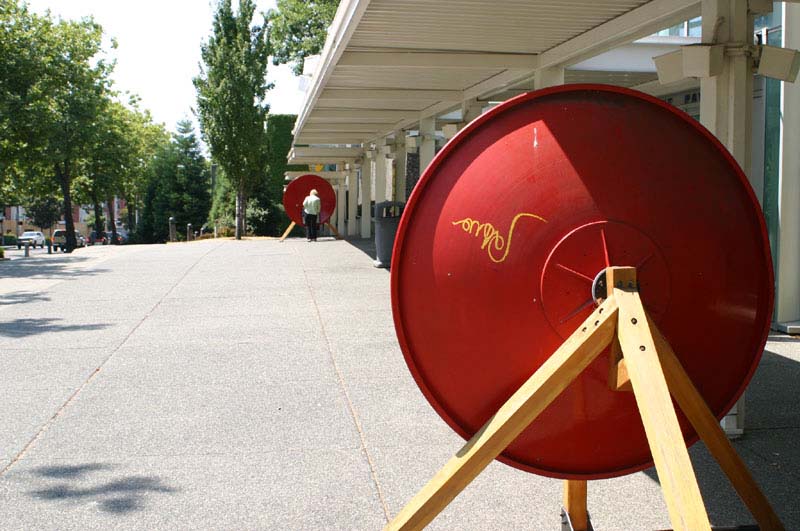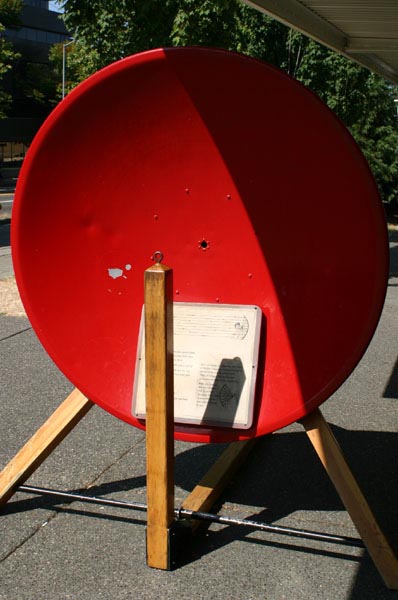1. Braking Distance Formula
The following table is taken from a
Virginia Division of Motor Vehicles Manual
and it shows the Reaction
Distance, the Braking Distance, and the Total Stopping
Distance at
various speeds.
The Reaction Distance is the distance that your car travels from the
time that the
driver sees the need to do so until his foot hits the brake.
The braking distance is the distance that the car travels after the
brakes are applied
until it comes to a stop.
The Total Stopping Distance is the sum of the Reaction Distance and
the Braking Distance.
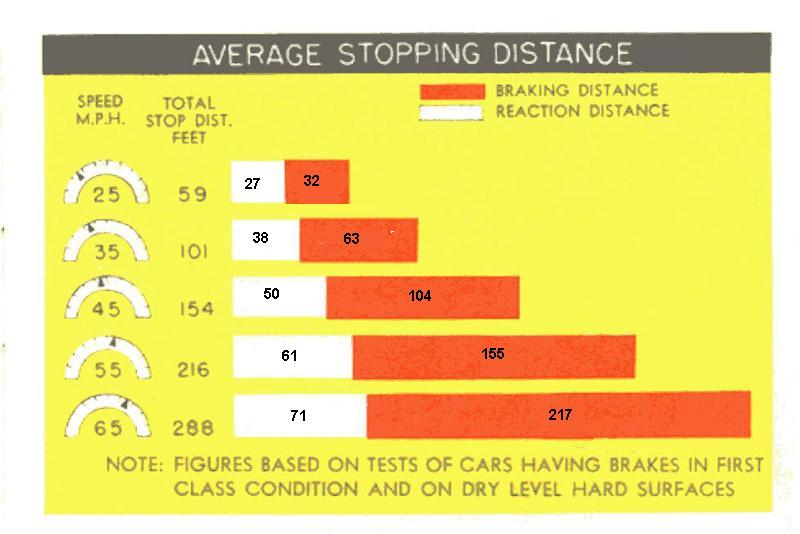
from the Learner's Manual of the Virginia DMV
Here are the formulas to compute those distances:
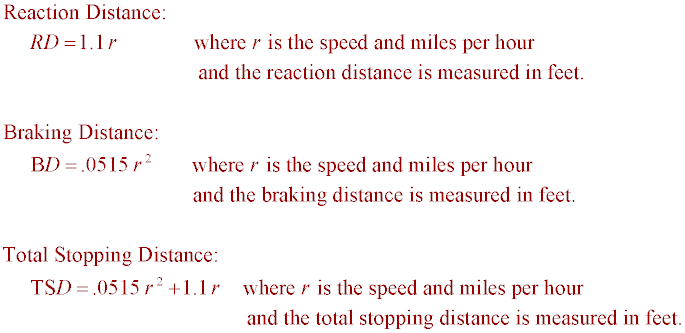
Note that both the braking distance and the total stopping distance
formulas are
quadratic, and therefore their graphs are parabolas.
2. Heater
Heaters are sold which make use of the
relection property of the parabola.
The heat source is at the focus
and heat is concentrated in parallel rays.
Have you walked by the
parabolic reflector heater at COSTCO?
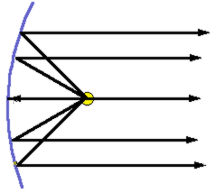
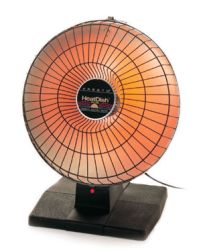
3. Satellite Dishes
Satellite Dishes work on this same principle.
Incoming waves are concentrated to the focus.
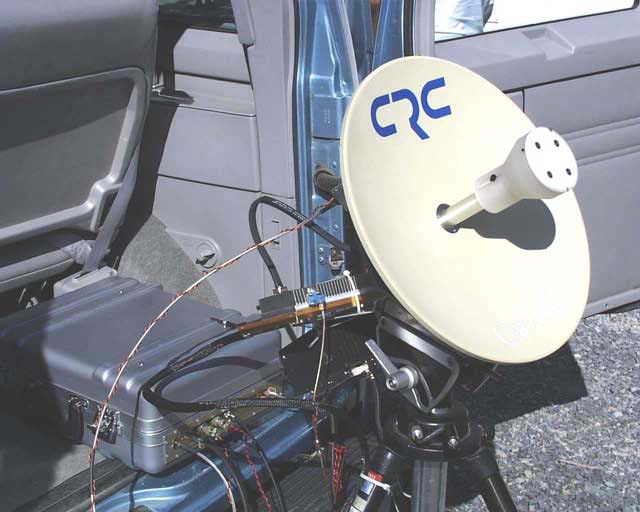
4. Automonbile Headlights
An automobile headlight is another example of a Paraboloid of Revolution --
taking a parabola and rotating it about its axis of symmetry.
The smooth inner surface of the headlight is a glass reflector upon which
bright aluminum has been deposited. This part is a powerful reflector.
A parabolic reflector has the property that if a light source is placed at the
focus of the reflector, the light rays will reflect from the mirror as rays
parallel to the axis.
This is used in auto headlights to give an intense concentrated beam of light.
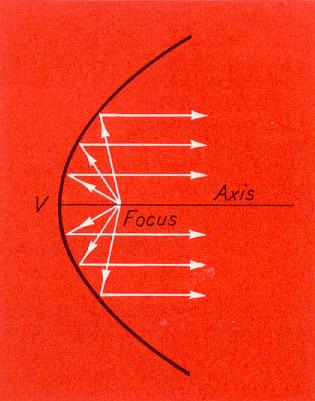
For safer night driving, we do not want all the light rays to be parallel
to the axis. Some light must be aimed far down the road, to the side, upward
for signs or bridges.
So we offset the filament from the focus and change the beam entirely.
In most of today's cars, a 4 Lamp System is used -- 2 filament sealed beam
units in 2 lamps.
The position of the filaments accomplishes most of the desired illumnination
patterns. The rest is taken care of by special lenses which contain prisms
to bend the light rays.
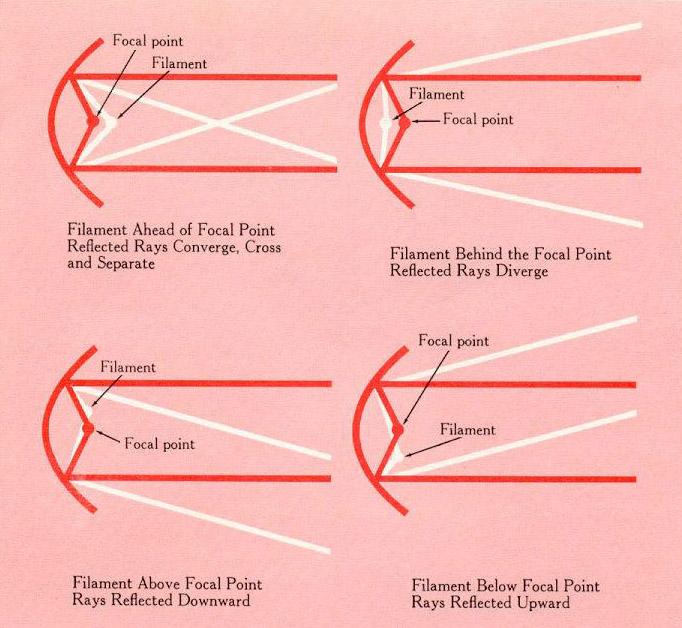
5. McDonald's Arches
McDonald's Arches are parabolas.
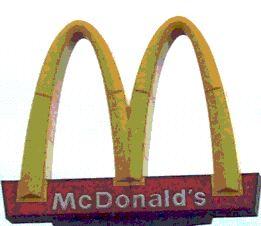
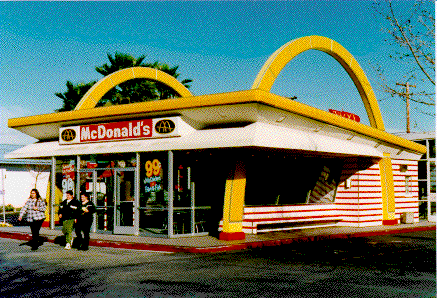
Actually, Carl Letsche sent in a correction about the Golden Arches not being parabolas.
Click here for the link
6. Fountains
Bellagio's fountains at Las Vegas exhibit water in the shapes of parabolas.
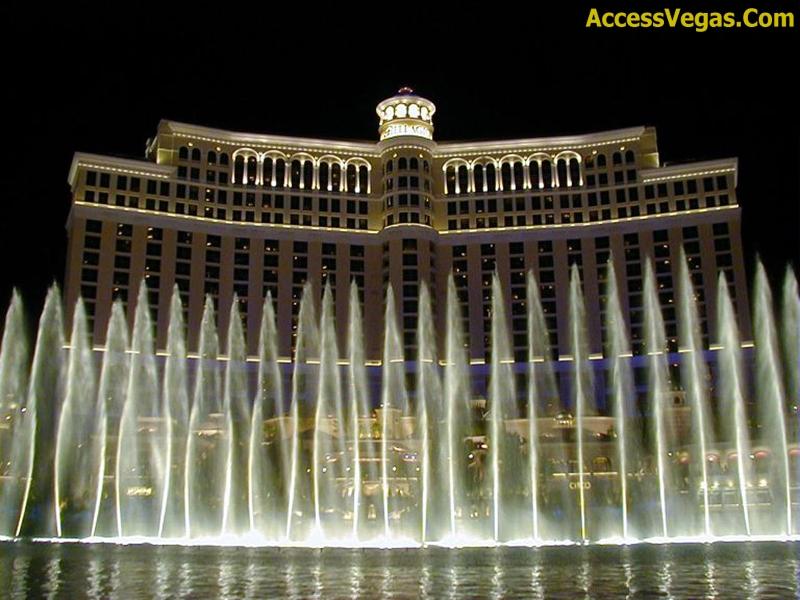
7. Path of a Ball
Gallileo was the first to show that the path of an object thrown in space
is a parabola.
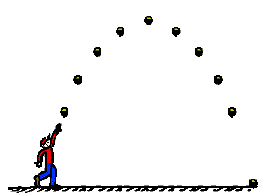
8. Golden Gate Bridge
The cables that act as suspension are parabolas.

9. Le Four Solaire at Font-Romeur
There is a reflector in the Pyrenees Mountains that is 8 stories high.
It cost two million dollars to build and it took ten years to build it.
It is made of 9,000 mirrors arranged in a parabolic mirror.
It can reach 6,000 degrees Fahrenheit just from the Sun!

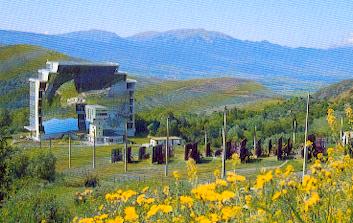
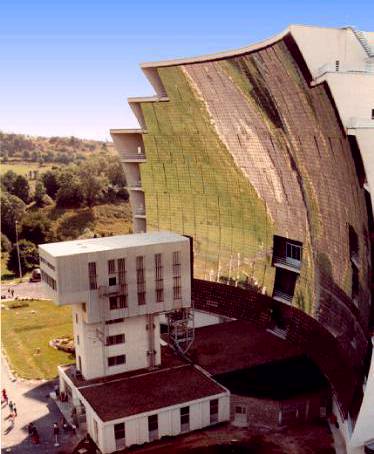
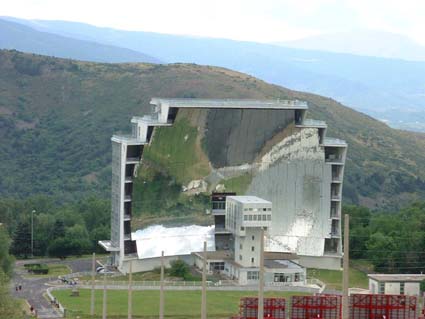

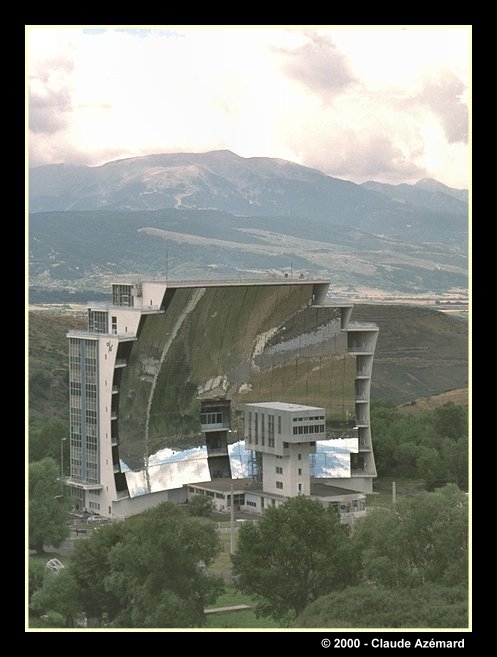
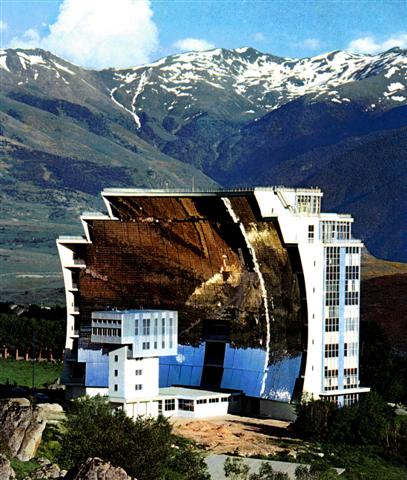
10. Parabolic mirror
A parabolic mirror at the Seattle Science Museum.
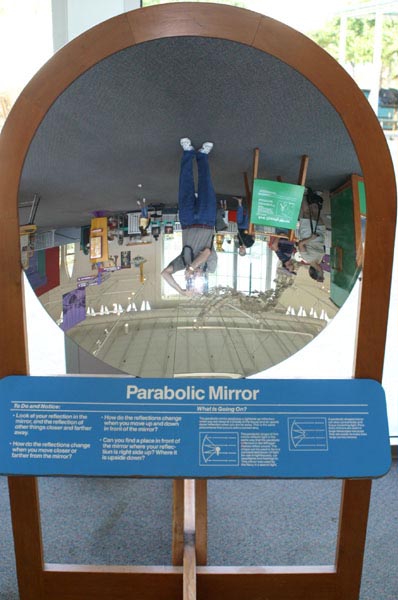
11. Parabolic Receivers
A person who whispers at the focus of one of the parabolic reflectors
can be heard
by a person located near the focus of the other parabola.
